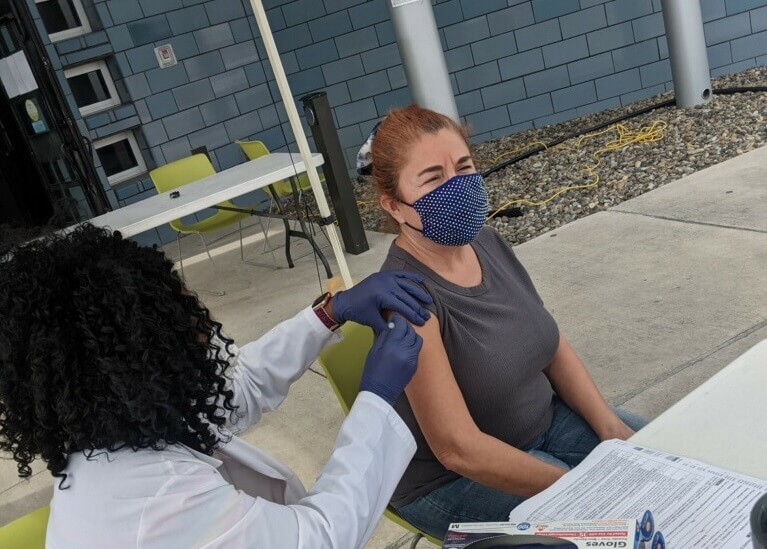Increased Risk of Serious Illness in Medically Underserved Communities
Providing health care that serves the whole person, including life-saving immunizations, is an important part of protecting the health of people with severe mental illness and substance use disorder. These medically underserved communities experience unique barriers to care and may face an increased risk of serious illness from viruses, including COVID-19, due to other underlying health conditions. Below, Bill Wrigley, Genoa Healthcare’s director of Clinical Product, Immunizations, shares information about Genoa’s immunization program.
What are the common immunizations provided by Genoa pharmacies?
Historically, we have focused on flu vaccines for our consumers and clinic staff in the fall. After COVID-19 vaccines were approved in late 2020, we moved quickly to gain access and administer as many shots as possible. Genoa pharmacists can also provide traditional vaccines like pneumonia, shingles, and tetanus, diphtheria, pertussis (Tdap).
Individuals with severe mental illness often have other chronic health conditions that put them at greater risk for severe illness from viruses, which makes preventive care so important for this population. For example, many people aren’t aware that for those who smoke tobacco or have conditions like diabetes and chronic heart disease – common risk factors for the behavioral health community – the pneumococcal vaccine is recommended for ages 19 years or older. Our pharmacists are well positioned to offer this service and help lower their chances of developing severe illness.
How are immunizations beneficial to the behavioral health community?
Vaccines are a cost-effective way to prevent communicable diseases. Given the barriers to preventive care for the behavioral health community, this population can benefit from a targeted approach to immunization messaging and care delivery.
When consumers come into our pharmacy for their immunizations, we can also take that time to address any barriers to care, challenges to staying on treatment plans or questions about medications they may be taking.
What barriers do those with serious mental illness and substance use disorders face when it comes to immunizations?
The same barriers that make it difficult for the behavioral health community to obtain their medication and access care in general apply to immunizations as well. Barriers to vaccinations include lack of awareness, accessibility, cost, fear of immunization, and lack of recommendations by primary care providers.
How does offering immunizations on site at behavioral health clinics help address some of these barriers?
Similar to how on-site pharmacy services remove barriers to quality care, offering vaccinations in the same place people go for mental health care increases their access to immunizations. There are multiple reasons for this, including the benefit of providing information as a trusted source for consumers and consistent messaging across the entire care team.
The convenience of being located in a familiar place helps improve access and combat transportation barriers as well. A recent article in JAMA Psychiatry shows that providing vaccination clinics parallel to mental health services can increase vaccination rates by up to 25%.





